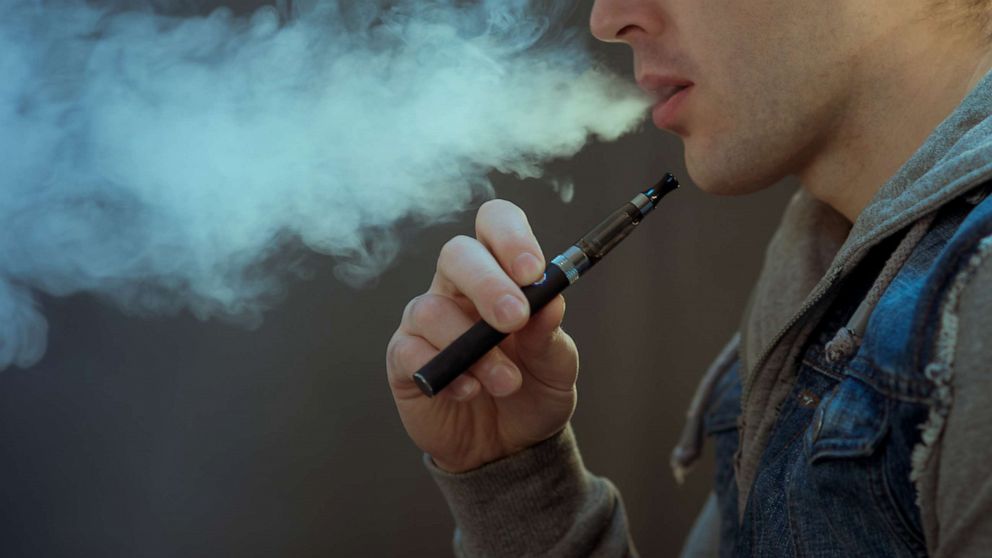WARNING: This product contains nicotine. Nicotine is an addictive chemical.
Caffeine, the beloved stimulant that powers our mornings, has now entered the vaping scene. Caffeine vapes claim to deliver the energy boost you need in a matter of seconds—without the hassle of brewing coffee or sipping energy drinks. But is this innovation all it’s cracked up to be? For vapers and energy enthusiasts alike, understanding the science, benefits, and risks of caffeine vapes is crucial.
This guide explores the ins and outs of vaping caffeine, from its fast-acting effects to potential health concerns. Whether you’re an experienced vaper or just curious about new trends, this deep dive will help you decide if caffeine vapes are worth the hype—or if they’re just another fleeting trend.
Caffeine vapes are compact devices that allow users to inhale vaporized caffeine for an instant energy kick. Unlike traditional caffeine consumption methods—like sipping coffee or energy drinks—this method bypasses the digestive system. By delivering caffeine directly into the lungs, the stimulant is absorbed into the bloodstream much faster.
Manufacturers often market caffeine vapes as a calorie-free and convenient alternative to conventional options. Many products come with sleek designs, disposable options, and enticing flavors, making them appealing to those seeking quick energy on the go. However, the lack of substantial research into their long-term effects raises questions about their safety and effectiveness.

Advocates of caffeine vapes highlight their efficiency and practicality as key selling points. The most prominent advantage is their rapid absorption rate. By inhaling caffeine, users often report feeling energized within moments—perfect for beating the afternoon slump or getting through late-night study sessions.
Another notable benefit is the absence of calories. For those trying to avoid sugary energy drinks or creamy coffee beverages, caffeine vapes offer a stimulant boost without compromising dietary goals. Their compact and discreet design also makes them an attractive option for busy individuals who need an energy lift while on the move.
While caffeine vapes may seem like a convenient solution, they come with their fair share of risks. The biggest concern is the unknown long-term impact of inhaling caffeine. The lungs are not naturally designed to process stimulants, and repeated use of such devices could potentially lead to respiratory irritation or other complications.
Additionally, caffeine vapes often contain additives and flavorings, some of which may pose health risks. The ease of inhaling caffeine also increases the likelihood of overconsumption, which can lead to common caffeine side effects such as insomnia, jitteriness, or heart palpitations. Compounding these issues is the lack of regulation in the caffeine vape market, leaving consumers uncertain about the quality and safety of the products they use.

Deciding whether vaping caffeine is “good” depends on your priorities and circumstances. If you value speed and convenience, caffeine vapes could be an intriguing option. However, the risks—particularly for those with respiratory or cardiovascular conditions—should not be overlooked. Inhaling caffeine may not provide the same sustained energy as a traditional cup of coffee, raising questions about its practicality for long-term use.
For the average user, moderation is key. Occasional use may provide a harmless pick-me-up, but relying on caffeine vapes daily could lead to dependency or health issues. Before trying this trend, it’s wise to consult a healthcare provider, especially if you have underlying medical conditions.
If you’re hesitant to dive into caffeine vaping, there are safer ways to sustain energy levels throughout the day. Traditional methods like coffee and tea offer a balanced release of caffeine, while energy drinks provide convenience with a range of flavor options. Hydration is another critical factor—fatigue is often a symptom of dehydration, easily remedied by drinking more water.
A healthy diet rich in whole grains, fruits, and proteins can also help maintain energy naturally. For those looking for a quick yet safe energy boost, supplements like vitamin B12 or ginseng have been shown to improve focus and combat fatigue without the potential risks of vaping.
Caffeine vapes are a modern twist on energy consumption, offering a quick and calorie-free boost by delivering caffeine through inhalation. Unlike traditional coffee or energy drinks, these devices allow caffeine to enter the bloodstream rapidly, making them convenient for busy individuals. However, the safety and long-term effects of inhaling caffeine remain largely unstudied, raising concerns about potential respiratory and cardiovascular risks. Additionally, the lack of regulation in this emerging market adds uncertainty about product quality. While caffeine vapes may appeal to those seeking instant energy, traditional methods like coffee, tea, hydration, and a balanced diet are safer, more reliable alternatives. For those considering this trend, moderation and professional advice are key to avoiding overuse and side effects.
